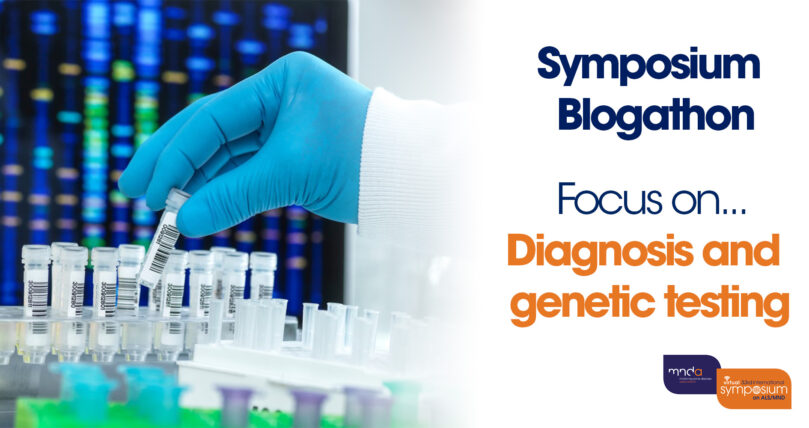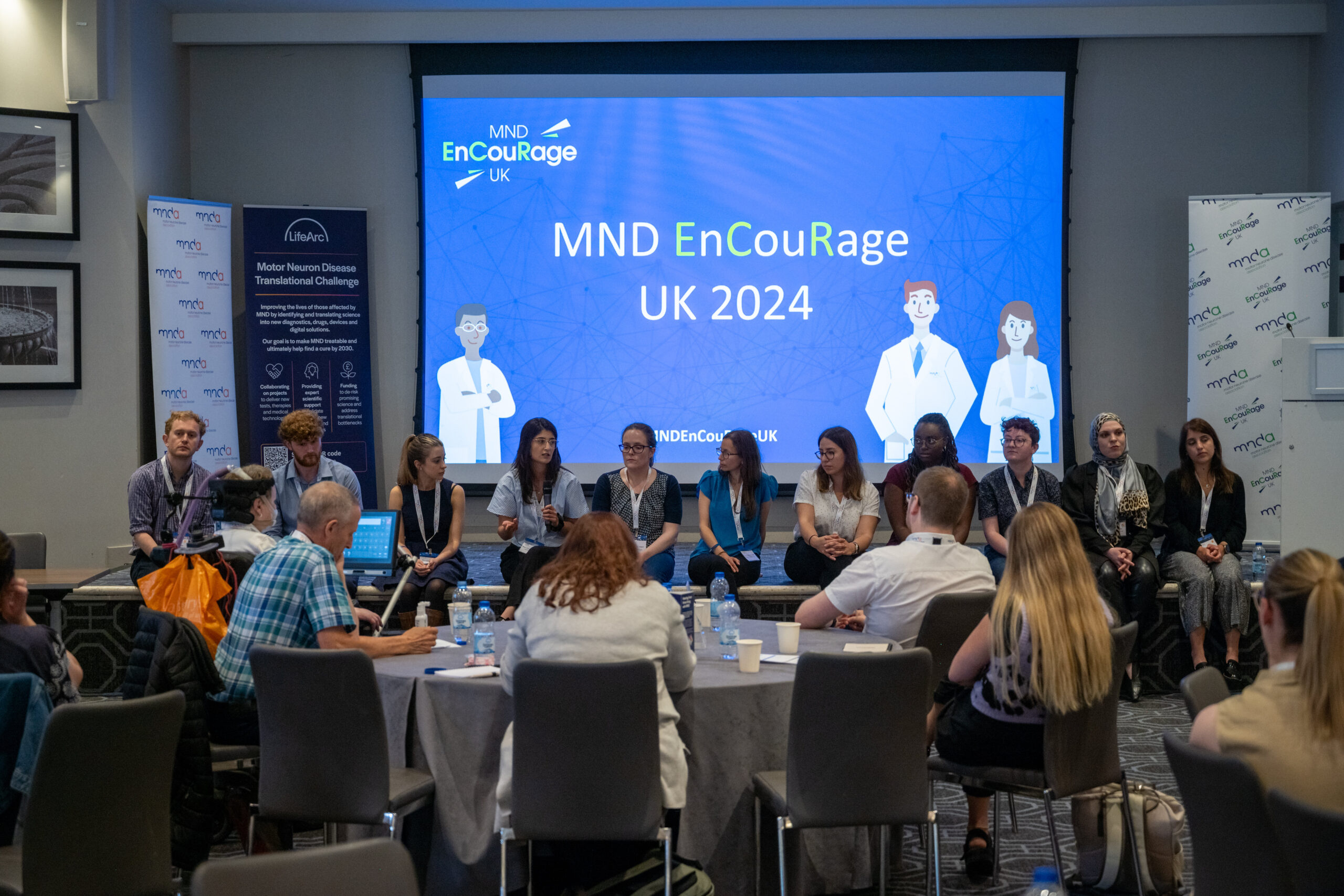This blog is part of our Symposium Blogathon series – where we are counting down to the 33rd International Symposium. Numbers in bold blue type correspond to the code in the abstract book. Click on the number to be redirected to the full abstract.
MND remains difficult to diagnose due to it being such a complex disease that often presents in different ways for different people. Many of the initial symptoms of MND, such as muscle weakness and slurred speech, are also associated with other conditions. There is no specific test for MND, and so other neurological conditions that cause similar symptoms have to be ruled out before a diagnosis of MND is made. There is a need for more rapid diagnostic methods for MND. Rapid earlier diagnosis will help to ensure that people with MND get access to the treatments and care that they need as early as possible.
Following diagnosis, some people may be offered genetic testing but guidance for genetic testing for the disease differs across the world. In the UK, the current guidance is that only people with MND who have a family history of MND or dementia or have disease onset at less than 40 years old should be offered genetic testing. However, there is increasing research evidence and discussion within the MND community that everyone who is diagnosed with MND should be offered genetic testing along with genetic counselling support.
RELATED TOPIC
Blog | 27 September 2022 | Charlotte Roy
Revisited: should routine genetic testing be considered for all cases of MND?
Diagnosing MND
Due to the progressive nature of the disease, early diagnosis is hugely important to ensure that people with the disease receive the right care and can start treatment as soon as possible. It has been suggested that most people with MND receive a diagnosis around 12 months after symptoms first begin. Researchers have been assessing the diagnosis process across different countries to help identify challenges and barriers to faster diagnoses. This work, being presented by Dr Catarina Campos from the University of Lisbon, studied the diagnosis of 1405 people with MND from 4 different countries. In her poster (CMS29), she will discuss the results of the study and how they could be used to try and make the diagnosis of MND a quicker process.
MND and genetic testing
Changes in many genes have been associated with the development of MND and the number of people with these different genetic mutations varies across the world. Some MND mutations have been found to be more frequent within particular countries and populations, but it remains unclear as to whether this is the case in areas of the world that are currently underrepresented in genetic studies. Researchers from Russia believe that there aren’t enough genetic studies looking into MND mutations in the Russian population. In this poster (GEN15), Alina Korbut will share the findings from a study looking at different gene changes in people with MND in Russia to find out if there are any gene mutations that occur more frequently than others in this population.
Based on the current guidance for genetic testing in the UK, it has recently been estimated that around 97-98% of people with sporadic MND may have gene changes that are missed. This is because they would not routinely be offered genetic testing under the UK guidance. With gene therapies for MND being tested in clinical trials, it is important that people are given the opportunity for genetic testing to identify whether they could benefit from these potential treatments. A clinic in the West of Scotland has been evaluating the genetic testing service for people with MND who have early-onset sporadic MND. Dr Fraser Brown from NHS Greater Glasgow and Clyde, will be presenting a poster (GEN03) detailing the results of this study, which used information from people with MND in the West of Scotland who had genetic testing to identify ways that the service could be improved.
Stay informed
If you have come across this blog through the Symposium website, or a general search please subscribe (see top right-hand corner of page) and you’ll be notified every time we upload a new article.
You can follow our research account on Twitter. We tweet about up to the minute research and will be tweeting throughout the Symposium using the hashtag #alsmndsymp.
Take a look at the schedule of blogs for November as we continue counting down to the 33rd International Symposium on ALS/MND with our Symposium Blogathon.
To listen to talks live, take part in the Q&As and visit the live poster sessions, register for the International Symposium now.







